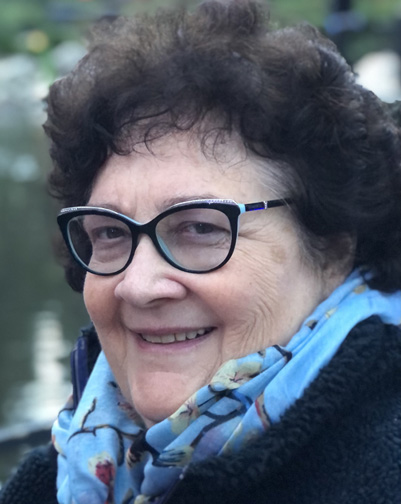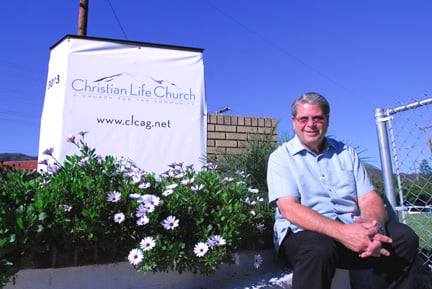Question: Our 13-year-old daughter, we’ll call her “Ginger,” was very close to her Grandma Jo who passed away this past March. We had a beautiful memorial service and Ginger read a letter she wrote to her grandma. Grandma Jo lived with us and cared for Ginger while we both worked. Ginger is having difficulty accepting that her Grandma Jo is gone from our lives. We all went to a grief group but Ginger felt she didn’t fit in because she was the youngest one there.
Whenever Grandma Jo’s name is mentioned Ginger cries. When she cries we feel like crying, too, because of the emotional pain she is going through. Please make suggestions that will help us to help her navigate her grief. ~ Loving Parents
Dear Loving Parents,
I can very much appreciate how valuable, meaningful and deep your daughter’s relationship with her grandmother was, and how keenly and devastating it is to lose someone she loved and cared for, and who loved and cared for her. The suffering from that kind of loss can be very intense and can take a while to heal. I am happy to see that you chose grief counseling for the family and a little distressed to hear your daughter did not feel she fit in because it is important for her to talk it out, and feel she is understood and supported.
Here are just a couple of suggestions: A young person can be easily intimidated by group sharing, especially with older people where she might fear being negatively judged. It also does involve a bit of a learning curve on how to open up and the guidance in a group share is not always as focused as some might need to initially learn how to do that.
Secondly, being exposed to others people’s pain when you are unable to deal with your own can be more burdensome rather than liberating, especially when this level of suffering prevents you from seeing the common ground that is a helpful aspect of the group experience. I would encourage you to put her into individual grief counseling. Any child needs individual guidance in acquiring the life skill necessary to deal with their first traumatic experience of death and loss that will not be easily gained in a group setting. The state may have publicly funded individual youth grief counseling or mental health programs you could check into. Likewise your local church may have designated and trained grief counselors who could give her the individual focus she currently needs. In my experience, most people who are not familiar with the process of counseling need a one-on-one with a counselor until she can first get to that trust level where she can begin to open up and share her feelings. Afterwards, group counseling can be a continued benefit and support.
For now, individual counseling is the practical step you can take.
But you are not limited to that. There are two spiritual steps that can be taken and will be helpful, as well as supportive, of the counseling the family is doing. Ernest Holmes, the founder of the Science of Mind, once said that if you wish to change something in your life, you need only change your mind. Re-framing an experience in your mind can help overcome any limiting barrier. In this case, it involves taking baby steps (not always easy at first) from an attitude of loss to an attitude of gratitude. That is, to an attitude of thanksgiving and celebration for the wonderful gift that Grandma Jo was in your lives. By releasing the focus away from a profound sense of regret, or irreplaceable loss and pain being experienced now, to one where the memory of Grandma Jo (realizing we all have but a short time in this world) can be openly acknowledged, treasured, celebrated and enjoyed for her brief time among you as the great gift and blessing she was. Doing so will go far in helping to move each of you towards the peace of mind you seek over her loss.
The second spiritual step you can take is using the power of affirmative prayer. At the Centers for Spiritual Living, we strongly believe in the power of prayer, in the power of the Word, to heal negative conditions both inward and outward. With affirmative prayer, we do not beg for the Good we desire, but rather speak our word “knowing” that by doing so, the good we desire will manifest.
Here is a little affirmative prayer you can use. Say it to yourself whenever you feel challenged by concern over your daughter’s current condition. It will help her in ways that will amaze you.
“My daughter is the beloved child of God. God’s perfect light of healing and goodness completely surrounds her. It heals her, comforts her, protects, strengthens and sustains her, giving her perfect peace of mind in all things. Her happiness and confidence is restored. I give profound thanks for this wonderful blessing. And so it is. Amen.”

Dear Loving Parents,
As a licensed clinical social worker, having done grief counseling and grief groups for years, I haven’t come across many for children. But there are many things you can do to help your child. One of my favorites is the grief box made from a shoebox. Have your daughter decorate it with pictures of Grandma Jo or things that Grandma liked … flowers, animals, etc. … using a glue stick. Inside Ginger can put family pictures, trinkets or whatever reminds her of Grandma. She can also make a little shrine to her in her bedroom. Put pictures, candles, hearts, flowers, verses to read, etc. on a pretty piece of fabric near a place where she likes to sit. Go thru family albums and talk about the pictures.
Check out your local bookstore for books on children grieving. Also, let her talk about Grandma Jo. When she cries, ask her where her tears are coming from. Say a prayer at night and be sure to use Grandma Jo’s name.

Carolyn Young, LCSW
cjymesalila@gmail.com
Question: My mother-in-law “Jane” and I have a great relationship. Our problem with her is she won’t ask for help. She tells us she thinks we’re too busy. Yes, we are busy; we both work and have three school age children, but are more than willing to take time for her.
A recent situation is causing us to rethink how involved we should be in her life. We called several times – no answer. She does a lot of volunteer work, still drives and is very independent, so we just assumed she was out and about.
After about five days and still unable to reach her, we went to her home. We have a key and let ourselves in. We found her sick in bed where she’d been for over a week she told us. We have no idea the last time she had eaten. She had been dizzy and had lost her balance and fell several times but somehow was able to get herself up. We immediately called her doctor to make an appointment who advised we take her straight to the ER. The diagnosis is an inner ear infection for which she is now being treated.
She scolded us for taking time away from work to take care of her. We told her we always have time for her no matter how it changes our schedules.
This was our wake up call to stay in much closer touch with her. Is there a way to convince her she is absolutely not a burden to us? And perhaps you could mention to others who have older parents to frequently check in with them as well. ~ Concerned Daughter-in-Law
Dear Concerned Daughter-in-Law,
Your instincts are correct. She needs your attention. In fact, no one can totally make it on their own – especially when sick – even with just a cold. Spending a week like that could be extremely detrimental to anyone’s health condition.
However, she sounds like she might be very sensitive to being seen as less than independent. You don’t want to make her feel that she is being treated as a child or seen as old or incapable in any way. How about a weekly meal together or an outing and a phone call at another time in the week? She probably would love the time with the family and it could be a high point in the week for all.
Your children need quality time with her as well. That way you can advance your great relationship and keep her closer at the same time. She might scold you but she is part of your family and her scolding is irrelevant. Many women have been socialized to not take care of their own needs or even be aware of them and definitely not to ask for help. It is time to include her in your life, not to take time from your life for her. Her life is involved with you not in some compartment you take time to peek at. So don’t just say you can make time for her, just make time with her and enhance the lives of all your family including your children who need quality time with her as well.
Going forward may you have many wonderful experiences together with your whole family. Elders can add depth and breadth to your life; they have so much to share from their treasure trove of understanding and know-how. The point is your life will be better and more meaningful with them woven into the fabric of your day to day.

Rabbi Janet Bieber
jbieber1155@aol.com
Dear Concerned Daughter-in-Law,
It’s commendable that your mother-in-law is independent, still drives and does a lot of volunteer work. However, it often seems that those who give a lot of their time and resources to others struggle to receive help from others. It’s possible that because they reach out to the less fortunate they often think whatever needs they may have are so much less important than the needs of others. The negative side of this is that it often equates to shutting others out and not receiving the help they need, even from their loved ones.
On the other hand, there are so many reasons why some people have difficulty asking for help. Sometimes it’s pride, other times it’s simply that they don’t want to be a burden or bother to others as she has told you. Whatever the reason she refuses your help, I’m sure you continue to feel the responsibility to reach out and help her. And that’s exactly what you did.
Fortunately, you were able to intervene for your mother-in-law and get her to the ER where she could get the medical attention she needed. But I’m sure, foremost in your mind, is that she doesn’t have another situation like this again.
To answer your question about how to convince her she’s absolutely not a burden to you: I would hope that the more you regularly call and check in with her as well as involve her in your family life and activities, the more she will come to realize that she’s not a burden to you but an integral part of who you are as a family. It would be a great idea to have your children hand write and color notes to her now and then and send them to her – letting her know how special she is to them. I would also suggest that you remind her of all the years she was there for your husband as he was growing up and how it’s your turn now to be there for her in the latter years of her life.
It was the Apostle Paul who wrote in Philippians 2:1-2 (the Message): “If you’ve gotten anything at all out of following Christ, if His love has made any difference in your life, if being in a community of the spirit means anything to you, if you have a heart, if you care – then do me a favor: Agree with each other, love each other, be deep-spirited friends.” I’m sure that’s your heart for your mother-in-law and I will be praying that you will be able to show her your love and care in a way that she will receive it and reach out in return when she is in need.
Blessings!

Pastor Randy Foster
randy.clc@att.net
